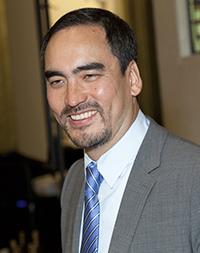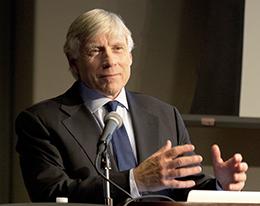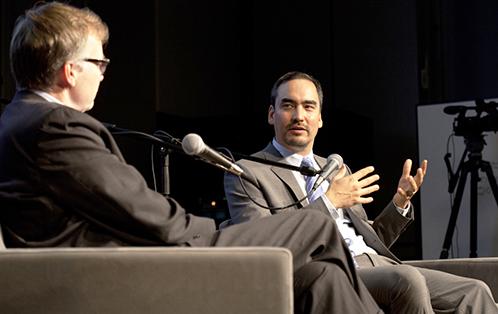Columbia Law School Professor Tim Wu Addresses Political Corruption and The First Amendment
Taking the Helm of Columbia Journalism School's Poliak Center for the Study of First Amendment Issues, Law Professor Tim Wu Explores How Americans Can Cultivate Better Leaders
New York, October 27, 2014—Shortsighted First Amendment jurisprudence allowing more and more money in politics has fostered corruption in government, Columbia Law School Professor Tim Wu said during an Oct. 21 event at Columbia Journalism School.
| Law Professor Tim Wu, the new head of the Poliak Center at Columbia Journalism School |
Wu, Isidor and Seville Sulzbacher Professor of Law, spoke for the first time as head of Columbia Journalism School's Poliak Center for the Study of First Amendment Issues, which sponsors professors and organizes programs to educate journalists, officials, and the public. He appeared in conversation with Journalism School Dean Steve Coll to discuss “Political Corruption and the First Amendment.”
Columbia University President Lee C. Bollinger ’71, a noted scholar of the First Amendment, introduced the talk and said he looked forward to seeing how Wu’s work with the Poliak Center will illuminate First Amendment debates.
“Tim Wu is someone I admire especially because he’s able to think about things in an entirely new way, and combine ideas in entirely new ways,” Bollinger said.
Speaking in the wake of his insurgent campaign to become the Democratic nominee for lieutenant governor of New York, Wu lamented the influence of money in American politics, especially in light of recent U.S. Supreme Court decisions including Citizens United v. Federal Election Commission (2010) and McCutcheon v. Federal Election Commission (2014).
Wu said many politicians spend much of their time soliciting donations to stay competitive in elections.
| Columbia University President Lee C. Bollinger '71 introduces Wu at the Poliak Center event. |
“What effect does campaign finance have on the character of our leaders?” Wu asked. “The dominance of donors creates a fundamental question whether leaders are elevating private interests over the public good.”
Wu argued that the grind of fundraising and pandering to big donors repels many public-spirited people from getting involved in electoral politics, leaving the field to peers with less to offer.
“Our form of government demands by its nature that we have particularly gifted people in leadership,” Wu said. “Some countries have the problem of all the talent being in government; we have the opposite problem.”
Wu suggested tougher regulation of political fundraising and spending might attract more people to become candidates that pursue the public interest.
“It all comes down to the quality of people and their capacity for virtue,” Wu said. “How we interpret the First Amendment can help create an environment that does not corrupt the character of our leaders.”
Coll said he looked forward to more scholarship from Wu and the Poliak Center.
“The Poliak Center needed a leader,” Coll said, “We are so fortunate to have persuaded Tim Wu to take the helm."
| Wu talks with Journalism School Dean Steve Coll about political corruption and the First Amendment. |


